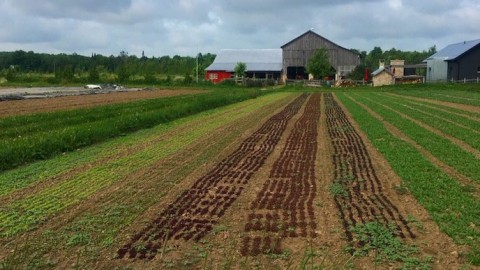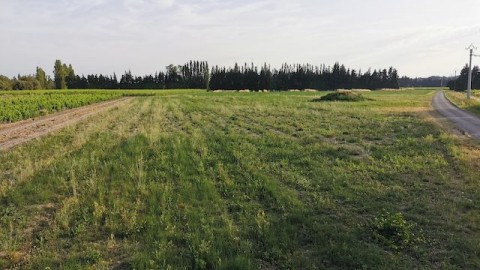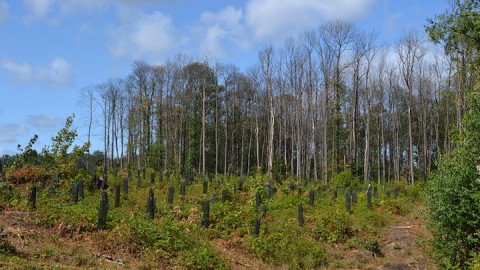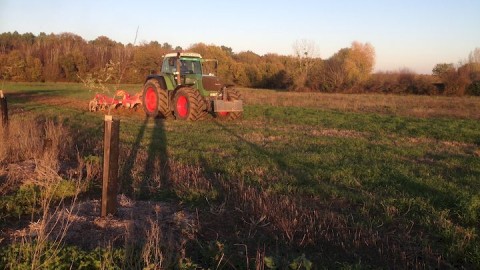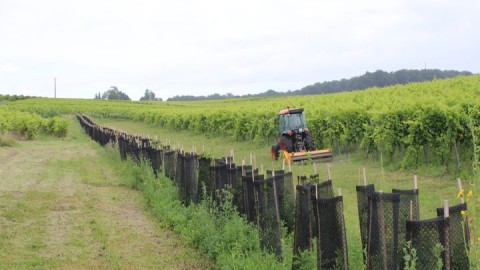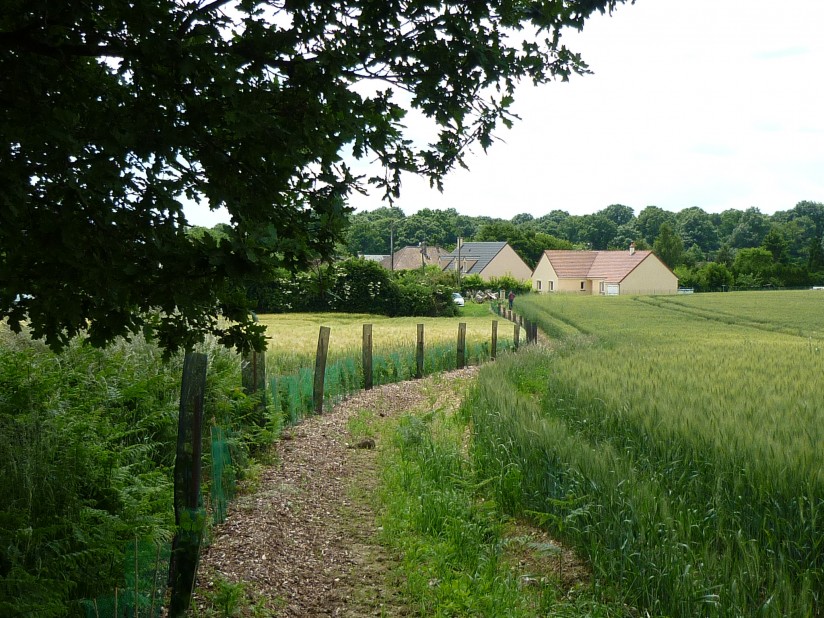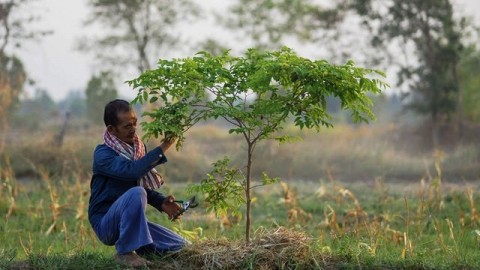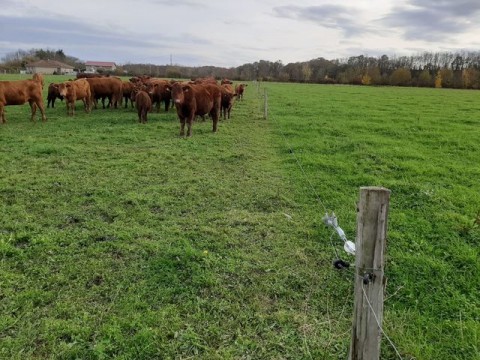
Background & challenges
Felix, is a farmer researcher who lives in the Basque Country and works in polyculture breeding on the Larrous Farm. He is a pioneer in Organic Conservation Agriculture, i.e. he reconciles organic farming and soil regeneration, to meet the challenges of carbon storage, water and biodiversity, as well as health and taste on the plate. It is a good example of a conversion from conventional farms to innovative and constantly improving practices.
Félix breeds Red Angus cattle for beef. The herd of 150 (50 cows, 40 bullocks, and 60 calves under two years’ old) is almost entirely (99%) raised on grass. The livestock is farmed in the Pyrénées-Atlantiques based on the principle of dynamic rotational grazing: the aim being to divide up the plots of pasture and establish breeding rotation on them – in order to respect the development stages of the plants and allow them to grow back as quickly and abundantly as possible, without drawing on their reserves. This approach allows grass growth to be exploited as much as possible, depending on the seasons, while meeting the needs of the animals put out to grass.
In order to improve his farming system, Félix is turning to agroforestry. He believes “agroforestry also makes real moral sense. Putting trees on my plots of land means I can benefit from all the advantages of the ecosystem: biodiversity, water and carbon storage, as well as society, too.”
Félix also grows maize and sunflowers. He uses organic farming methods for all the activities on his farm.
The project aims to sustainably introduce 1,208 trees of 13 different species within these grazed plots. The initiative will deliver many benefits:
- create an extra supply source for cattle feed;
- create a microclimate as well as shade zones for the well-being of the cattle, in the context of climate change;
- preserve grass production by allowing water to better infiltrate and protecting the grass thanks to suitable shade created by planting trees on the dry slopes;
- regenerate the soil and optimise grassland productivity;
- storing carbon and structuring the soil thanks to the tree roots and the soil fauna they stimulate;
- promote infiltration of stagnant water in certain areas;
- diversification of production through fruit trees;
- create a pleasant living and working environment for the farmer.
Project type

Agroforestry
Beneficiaries

Félix, farmer
Number of trees

A total of 1,510 trees will be planted, for 1,208 lasting trees
Species planted

Local species have been selected and the aim is to adapt the farming system to climate change.
Mulberry – Morus alba, Mulberry tree – Morus kagayamae
Fruit trees: apple tree – Malus, pear tree – Pyrus, medlar tree – Mespilus, fig tree – Ficus carica, walnut tree – Juglans regia L.
Hawthorn – Crataegus monogyna, rosehip – Rosa canina, elderberry – Sambucus, viburnum, privet – Ligustrum, dogwood – Cornus
Partner

French Agroforestry Association
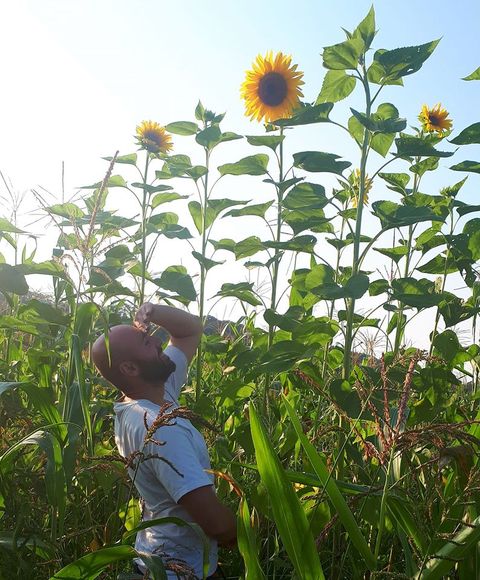
Works timeline
The work will be carried out over two planting years as follows:
- Spring 2020: 1/3 of the trees to be planted.
- Winter 2020: soil preparation and planting the remaining fruit and mulberry trees
- 2020-2023: monitoring and maintenance of plantations, replenishing if necessary.
Planting partner
The French Agroforestry Association (AFAF), created in 2007 under the French law of 1901, develops agroforestry in France for agriculture and in the political arena, as well as with the general public. It is a platform for exchange and partnerships between farmers, agroforestry operators, researchers, political decision-makers, local authorities, and administrative bodies. The AFAF proposes recommendations at both national and international levels and works to ensure trees regain their role within farming systems.
As part of this particular project, the Association is in charge of technical follow-up with beneficiaries over time, as well as providing all information needed for communications.
Budget
The total budget to be collected is €33,582.40 or €27.8 per lasting tree,
- 95% allocated to the planting project, broken down as follows:
o Plants and fillers: €3.89o Mulching: €1.26o Protection and stakes: €4.10o Technical advice: €5.05o Follow-up over three years: €2.21o Coordination, project management and communication for AFAF: €5.80o Collection, monitoring and communication costs for A Tree For You (14.75%): €4.10
- and 5% (€1.39) to support the structural costs of A Tree for You.
The farm is self-financing the soil preparation and planting stages, at a cost of €6.24 per tree, i.e. 18% of the total cost of the project.


